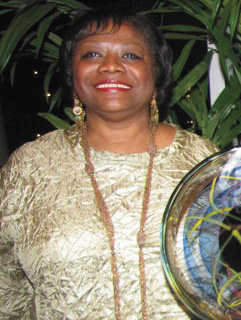by Michael Yonas, DrPH
This month’s special section on aging and mobility is a continuation of the monthly series started last year, focusing on health disparities in the Pittsburgh region. It is a collaboration among the New Pittsburgh Courier, Community PARTners (a core service of the University of Pittsburgh’s Clinical and Translational Science Institute—CTSI) and the Urban League of Greater Pittsburgh. Michael Yonas, DrPH, assistant professor of family medicine at Pitt, sat down with Esther L. Bush, president and CEO of the Urban League, to talk about this month’s focus.
MY: Ms. Bush, your opinion on the previous health disparities and research awareness segments has been so insightful. What are your thoughts about this month’s overview on healthy aging?
EB: Aging is a particularly relevant issue here in Allegheny County, where we have one of the nation’s largest populations of older Americans. Pittsburgh’s reputation as “America’s Most Livable City” makes it very attractive to lots of people from all backgrounds, and, of course, lots of retirees, as well. Let’s make it a point to keep the “living” in livable city by making a commitment to having a long and healthy life! Being more active is not only good for our physical health, but it contributes mightily to our mental health as we are able to get out in our communities and interact with others.
MY: I was happy to see the word getting out about what a resource we have locally with the University of Pittsburgh’s Pepper Center. The Pepper Center’s research is dedicated to increasing knowledge that will lead to better ways for older Americans to maintain or regain independence.
ELB: Yes, and I especially like the Pepper Center’s focus on promoting wellness through prevention. It is so important—at ALL stages of our life—for us to be informed and BE ACTIVE! In order to prevent and address the disparities in diabetes, cardiovascular disease and mobility that we see among Blacks and Whites here in Pittsburgh, it is especially important that older Blacks get involved and learn more about the opportunities to living more active lives.
MY: I have learned a lot from this month’s segment, especially with regard to the importance and value of being active later in life and the research that is being done to learn more about how to help this happen.
EB: Absolutely, Michael. I thought it was great to learn about some of the interesting and exciting research studies that are going on right here in Pittsburgh. Dancing, walking groups and meeting with friends sound like fun, and if these studies help us learn more about how to safely increase mobility for older adults of all backgrounds, that just makes it a big win/win!
MY: You and I both have participated in research studies at the University of Pittsburgh in the past. From your experience, is there anything that you would like to tell others if they were interested in getting involved in aging research?
EB: Well, I’d tell them that the studies highlighted on this page sound like a lot of fun and a great opportunity to bring exercise into their lives. Also, it’s important for people to know that not all research studies include medical procedures. Some, like those highlighted here, actually require participants to just try new forms of physical activity. And, while participants are involved, they receive the support of health care and research experts. Before participating in any research study though, ask questions! Ask about the risks and benefits of being in the study, and remember that being in a research study is always voluntary. I encourage Allegheny County seniors to consider joining the Pepper Center’s research registry so they can stay informed about new research studies for which they may be eligible. Joining a registry is a great way to stay informed, and it’s important to know that when joining a registry, there is never any obligation to participate in research.
